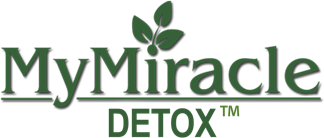
By Dr. Craig Frogley, Chiropractic Physician
In an age of the empirical demand for measurable and peer-reviewable results, health care, like religion hovers between Newtonian physics and the newer but more theoretical quantum physics. The explanations from Newtonian physics seem more logical than those of quantum physics because Newtonian physics deals with relationships of matter and energy on a macro level; chairs, cars, and waffles. Quantum physics, while not contradicting Newtonian physics, focuses primarily on relationships of matter and energy on a subatomic, nuclear level. We are comfortable talking about Newtonian causes and effects because we deal with their visible measurements every day in labs, hospitals, and homes. When I trip, I fall; when I burn a finger, I hurt. I trust that when I take a pain-killer, the pain will stop. We expect there to be an immediate and discernable reaction for every action.
Then along comes some quantum physicist who tells us that a butterfly flapping its wing in New York effects the weather in Hong Kong, and we just shrug our shoulders and nod absently. When the effect is separated, in either time or space from our observed cause, we very often lose the connection. Consequently, we do things or fail to do others just because we have not learned or have forgotten the cause-condition-symptom chain.
Even though much more is being researched and published today about real causes of many of our symptoms, we continue to either disbelieve or ignore the connection. In health care, this continues the crescendo of many chronic diseases like diabetes, heart disease, dementia, and cancer. For example, though research has shown the link between sugar consumption and diabetes, dementia, cancer, and now heart disease; sugar consumption continues to escalate.
We have driven industries to provide solutions to our pains, by demanding results that focus on symptoms rather than causes. Though we content ourselves with pages of side-effect disclaimers, we pay for solutions that quietly create sub-symptomatic conditions with eventualities that are often incapacitating or fatal. We happily foster and feed conditions, unaware of the often-simple causes; heading towards a cliff but pacified in knowing that there is an ambulance waiting below and insurance to pay for it! If it was just a matter of discovering truth and then subsequent education, the research dollars wouldn’t disappear just because the truth comes from nature and can’t legally be patented.
Many modern medications are the result of research on plants and roots but all too often their goal is to just make us comfortable by masking pain, lowering blood pressure, or other symptoms. Unfortunately, we then continue causing damage by our dietary choices. I used to ask patients if they were awakened by the loud squeal of their smoke alarm and had called the fire department, what they would expect. Would they be satisfied if a kind fireman or woman were to remove the battery, so the noise wouldn’t keep them awake? Even extinguishing the fire is not enough if there also existed a hidden cause, like a sparking loose electrical wire. Though research may not have found direct causes to all our physical ailments, we do have enough data to know that one or more of three kinds of stress causes most, if not all disease.[i]
Whether physical (trauma), chemical (dietary, medicinal, or environmental), or mental (worry, inadequate emotional IQ, etc), the stress produces an inflammatory response that, if addressed early, can be relatively easily resolved. The problem is that these inflammatory conditions are often, initially without symptom. There is little or no fire alarm until the fire has grown into dysfunction and has become the cause of other conditions, chaining into “dis-ease.”
In the case of physical stress from traumas, the medicinal pain control is a blessing. But if the physical stress is caused by poor ergonomics (posture, body dynamics, etc.) then controlling pain while continuing the repetitive micro-trauma is akin to taking painkillers so you can win the contest to see how long you can keep your hand in a fire! Likewise, medication may help with mental stress resulting in anxiety, in the short run, but if the cause is inadequate emotional IQ or poor diet, the chronic use of medication will lead to side-effects, dependency, and addictions without solving the root cause. In both scenarios, taking time to trace symptoms to conditions and then to causes would result in a different approach; one using education and self-discipline with the resultant increased capability to exercise personal agency.
“The gastrointestinal tract is sensitive to emotion. Anger, anxiety, sadness, elation — all of these feelings (and others) can trigger symptoms in the gut. The brain has a direct effect on the stomach. … Therefore, a person’s stomach or intestinal distress can be the cause or the product of anxiety, stress, or depression.” [ii]
Recent research findings have targeted the importance of the intestinal tract with its resident microbiome on our immune systems, and brain health. Prudent dietary attention needs to be given to the health of this here-to-fore ignored organ: the microbiome and its intestinal environment.[iii]
New and ancient remedies are finding renewed validation that we have had since 1833 in this revelatory gold mine of health principles we call the Word of Wisdom. One, of many that we have found preventative, healing, and enlivening is “My Miracle Detox or My Miracle Tea.”[x]
I don’t endorse many specific products but wish to include this one as a wonderful example of the prudent use of “herbs in the season” that “strengthens the body and enlivens the soul.” We have personally used it for seven years.
[i] https://www.sciencedaily.com/releases/2012/04/120402162546.htm “Now researchers have found that chronic psychological stress is associated with the body losing its ability to regulate the inflammatory response.”
[ii] The gut-brain connection – Harvard Health https://www.health.harvard.edu/diseases-and-conditions/the-gut-brain-connection
[iii] https://commonfund.nih.gov/hmp; https://microbiomejournal.biomedcentral.com/?gclid=Cj0KCQjwtb_bBRCFARIsAO5fVvFaUfBds3Mi3DAP9vZXJa85y5sxgRZOp2M9fOKCd70dNcLvox8cdW4aAiltEALw_wcB
https://microbiome.uchicago.edu
https://www.frontiersin.org/articles/10.3389/fgene.2018.00212/full
https://www.scientificamerican.com/article/mental-health-may-depend-on-creatures-in-the-gut/